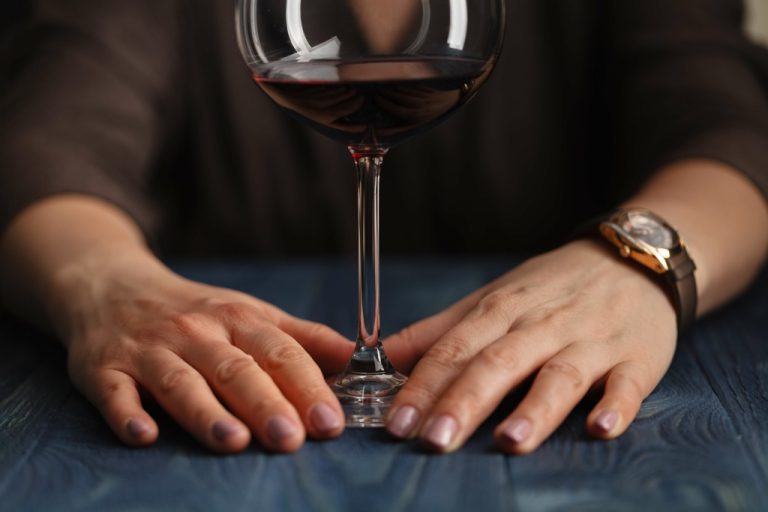Vulkanbet 25 Euro Zugabe Ohne Einzahlung 2024 25 Promo Code
2 de março de 2024Mostbet Overview Beoordeling Van Sobre Nederlandse Mostbet Casino”
25 de outubro de 2024Most of society is ignorant on this topic, and along with this ignorance, you’ll also find a high percentage of people who lack empathy for alcoholics…and may even be disgusted by their behavior. Crystal Raypole has previously worked as a writer and editor for GoodTherapy. Her fields of interest include Asian languages and literature, Japanese translation, cooking, natural sciences, sex positivity, and mental health. In particular, she’s committed to helping decrease stigma around mental health issues. At the end of the day, one of the most important tools you have at your disposal is self-compassion.
How to Gain Control of Your Alcohol Use
The incidence of bingeing behavior also presents an increased risk for alcohol dependence and misuse. Support groups play a critical role in the recovery journey for individuals struggling with binge drinking. Peer support, as evidenced in a study involving National Guard members, can significantly reduce the frequency of binge drinking episodes. Participants who engaged in a peer-support group reduced their binge drinking days from an average of 5.2 to 2.6 days per month. This demonstrates the effectiveness of shared experiences and mutual encouragement in overcoming alcohol misuse ( source ). It can lead to the development of chronic diseases such as high blood pressure, heart disease, stroke, liver disease, and certain types of cancer.

Understanding Binge Drinking versus Alcoholism
According to research, many people who become aggressive when drunk score high on the anger-suppression scale. They may be great at masking their feelings under normal circumstances. But since alcohol lowers inhibitions, it may all come spilling out when they drink. Ultimately, each person’s journey is unique, and personalized strategies must be developed to address individual challenges and needs in recovery. By combining these techniques and remaining vigilant, individuals can enhance their ability to prevent relapse and sustain a healthier, substance-free lifestyle.
Why can some people cut down?
MM asks participants to take a realistic look at their drinking patterns and reasons for drinking. The mechanism causing kindling is the same as that behind why recovering alcoholics cannot control their drinking. So drinking lower amounts of alcohol during lockdown could mean that your liver is less effective at “clearing” alcohol from the body. As a result, you’ll feel the intoxicating effects even from lower amounts of alcohol.
- With approximately 21.5% of US individuals aged 12 and older engaging in binge drinking, it’s a public health issue of high concern.
- Local treatment facilities offer services for those seeking help, from detoxification to aftercare.
- It’s important to note that binge drinking can lead to long-term health effects, including liver damage, cardiovascular disease, and neurological impairment.
- We welcome anyone who wishes to join in by asking for support, sharing our experiences and stories, or just encouraging someone who is trying to quit.
- Facing a few years in prison in a state that I had just moved to was scary, and when I got the charges dropped to misdemeanors and let out of jail after just four days, something inside of me changed.

Equally, increased alcohol consumption during lockdown could lead to increased metabolic tolerance, where a greater amount of alcohol is needed to feel intoxicated. An addict has almost no control over their desire to engage in the actions repeatedly. Even when alcohol addiction negatively affects your relationships, career, health, and quality of life, someone who is addicted is unable to gain control over and stop drinking for long-term success. If your body is used to a certain amount of alcohol, you may feel certain effects when you stop. How you feel when you stop drinking is largely based on how often and how heavily you drink. People who only drink occasionally probably won’t notice any physical or psychological symptoms.
- Understanding your habits and your motivations to quit drinking can help you understand the change you’re making in your life and reinforce why it’s important.
- MM asks participants to take a realistic look at their drinking patterns and reasons for drinking.
- Communicate your intentions and goals to those with whom you surround yourself with the most.
- Consider if you should avoid situations where heavy drinking is involved or limit your time with friends or places where binge drinking behavior is likely to take place.
- For those who love someone living with an addiction, it is very difficult to sit back and let the crisis play out to its fullest extent.
- If you say or do something negative in response to what your loved one has done, that gives them the opportunity to react to your reaction.
- Many theories have attempted to offer an answer – some say maybe it’s genetic, others speculate it’s personality, and again others, call it a disease – but I have a different theory.
- What about that friend who often seems mild-mannered when sober, but changes character completely when they drink?
- Behavioral indicators encompass drinking more and for longer than intended, engaging in risky behavior, and experiencing frequent hangovers.
- You might run into obstacles along the way that tempt you to drink.
- Containing axons (nerve fibers) connected to nerve cells, white matter facilitates the transmission of messages throughout the central nervous system.
Despite efforts to comprehend the overall biology of substance use disorders, scientists’ and physicians’ understanding of the relationship between women’s health and binge drinking has lagged behind. Skrzynski’s team’s recent research suggests mindfulness may be a simple but powerful way to cultivate a healthier relationship with alcohol. Laying it all out in black and white can take time and some serious self-examination. Sober House Understanding your habits and your motivations to quit drinking can help you understand the change you’re making in your life and reinforce why it’s important. If you’ve become dependent on alcohol, cutting it out of your life may produce withdrawal symptoms, such as a rapid heartbeat, high blood pressure, sweating and shaking. Psychological symptoms can include irritability, anxiety and restlessness.
Believe me, bartenders are used to these conversations, and they will not hold it against you. In fact, most bartenders will be very respectful and discreet and will keep an eye out for you thereafter. If your buddies are trying to get you drunk, that’s another story. There is a lot of information available for families affected by alcoholism and attending an Al-Anon meeting can be a supportive step in taking care of yourself. So, what happens when you stop enabling someone with an alcohol or substance use disorder? It’s possible that after an enabling system is removed, the fear will force a person to seek help, but there are no guarantees.
How to Deal With an Angry Drunk
It’s no wonder why my brain would scream “GO” after I had that first drink…it was trying to help me survive. The midbrain changes that occur when an individual crosses the invisible line from responsible drinker to alcoholic also lead to another pattern. Even if I had to wake up early for work in the morning, this would not stop https://fintedex.com/top-5-advantages-of-staying-in-a-sober-living-house/ me from getting drunk the day before. A normal person would have a drink or a couple of drinks, then the buzzers would go off and tell them they’ve had enough, and they would stop. After he explained this phenomenon to me, things started making a lot of sense. Now I realized how most people were able to control their drinking.
